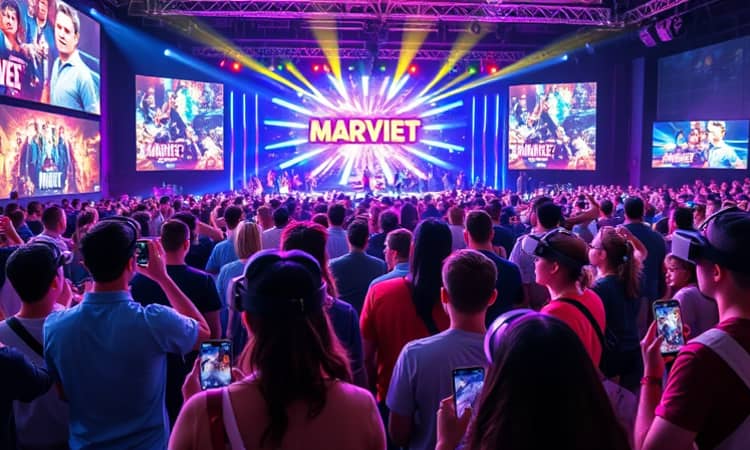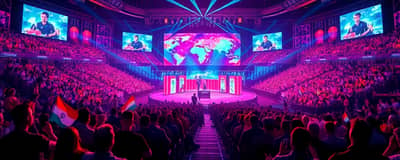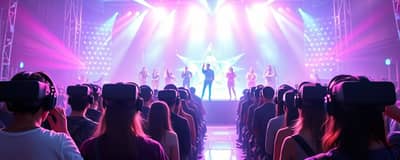In today’s fast-paced media environment, brands must become more than observers—they must be integral to the story. Entertainment marketing offers a powerful pathway to forge meaningful connections that last, transforming passive viewers into active fans.
Definition and Overview
Entertainment marketing is a strategic approach that embeds brands within films, music, games, events, and other entertainment mediums. By positioning a brand as part of the narrative, it transcends traditional advertising noise and becomes an experience rather than an interruption.
This integration not only elevates brand recall but also deepens emotional bonds. As audiences invest time and emotion into stories, products and messages woven into those narratives gain authenticity and resonance.
Core Objectives
The ultimate goals of entertainment marketing revolve around engagement, loyalty, and conversion. Every tactic should align with one of these pillars:
- Building long-term brand affinity by tapping into consumer passions and preferences.
- Generating buzz for entertainment properties—movies, shows, albums, and games.
- Driving concrete results: ticket sales, subscriptions, digital downloads, and merchandise purchases.
By focusing on these objectives, marketers can ensure that every campaign not only delights but also delivers measurable outcomes.
Key Strategies and Techniques
Successful entertainment campaigns blend classic and cutting-edge tactics to stand out in crowded feeds and busy venues.
- Product Placement: Seamless brand appearances within films and series, like luxury cars in blockbuster movies.
- Brand Integration: Characters using or referencing a product as part of the storyline.
- Celebrity & Influencer Endorsements: Partnering with stars whose audience trust amplifies impact.
- Event Sponsorships: Aligning with high-profile concerts, festivals, and sports gatherings.
- Interactive Experiences: AR/VR activations and social media challenges that drive 10x higher engagement compared to static posts.
Creative elements such as behind-the-scenes content, live-streamed Q&A sessions, and exclusive previews generate anticipation and encourage sharing across platforms.
Understanding Your Audience
Precise audience segmentation is the bedrock of any marketing mix. Brands must identify demographics, interests, and platform habits to tailor experiences that resonate.
For example, TikTok thrives on rapid trends and short-form creativity, while Instagram rewards polished visuals and storytelling. Facebook still offers broad reach, but content must evoke emotion within mere seconds of a user’s attention span.
The 7Ps of Entertainment Marketing
- Product: The core entertainment offering
- Price: Ticket fees, subscription tiers, or retail pricing.
- Place: Distribution channels—cinemas, OTT platforms, live venues.
- Promotion: Digital campaigns, PR, influencer partnerships.
- People: Talent, creators, and fan communities.
- Process: Seamless access, from ticketing to streaming.
- Physical Evidence: Merchandise, branded collectibles, and social buzz.
By optimizing each P, marketers can orchestrate cohesive campaigns that move audiences from awareness to advocacy.
Measuring Success and Emerging Trends
Data-driven insights ensure that entertainment marketing evolves with audience behaviors and platform dynamics.
Engagement metrics—likes, shares, dwell time—reveal real-time performance, while conversion tracking links campaigns directly to sales and subscriptions. Interactive activations can drive engagement rates up to 10 times higher than static posts, proving the value of immersive experiences.
Looking ahead, personalization through AI-driven recommendations will enable brands to deliver tailored content at scale. Meanwhile, augmented and virtual reality experiences will redefine how audiences interact with brands, offering unforgettable moments of connection.
Case Studies in Action
Audi’s sleek vehicles in the Iron Man franchise reinforced the brand’s image of innovation and luxury, while Coca-Cola’s New Coke revival in Stranger Things tapped into nostalgia and generated viral conversation.
On social media, TikTok influencer campaigns have demonstrated rapid ROI: authentic endorsements spark user-generated content, propelling trends and expanding reach organically.
Conclusion
Entertainment marketing invites brands to step onto the stage, not just as sponsors but as storytellers who co-create experiences with audiences. By leveraging emotion-driven narratives and immersive technology, marketers can capture attention, foster loyalty, and drive meaningful action.
Embrace these strategies today to transform your campaigns from background noise into center-stage spectacles—because when brands become part of the story, audiences become lifelong fans.
References
- https://www.moengage.com/blog/entertainment-marketing-strategies/
- https://www.amworldgroup.com/blog/the-ultimate-guide-to-entertainment-marketing
- https://webengage.com/blog/entertainment-marketing-strategy/
- https://www.adogy.com/terms/entertainment-marketing/
- https://marketing.sfgate.com/resources/arts-and-entertainment-marketing-guide
- https://www.behaviolabs.com/blog/how-to-capture-consumer-attention-with-your-ad-campaigns
- https://help.hootsuite.com/hc/en-us/articles/4403597090459-Create-engaging-and-effective-social-media-content
- https://www.designity.com/blog/sports-and-entertainment-marketing-101














